Maintenance for the week of November 24:
• PC/Mac: No maintenance – November 24
• PC/Mac: No maintenance – November 24
The connection issues for the European PC/Mac megaserver have been resolved at this time. If you continue to experience difficulties at login, please restart your client. Thank you for your patience!
Aigym Hlervu's Guide to Socio-Economic Formations of Tamriel.
Aigym_Hlervu
✭✭✭✭✭
A GUIDE TO SOCIO-ECONOMIC FORMATIONS OF TAMRIEL
by Aigym Hlervu
CONTENTS
1. Introduction
2. Brief terminology
3. The Empire
4. Dunmer
5. Ashlander Tribes
6. Nords
7. Bretons
8. Argonians
9. Redguards
10. Khajiit
11. Orcs
12. Altmer
13. Bosmer
14. Clockwork City
15. Dwemer
16. Conclusion. The Three Banners War. Character Classes
14
-
Aigym_Hlervu✭✭✭✭✭INTRODUCTION
Hey, guys! Sorry for such a huge wall of text - I tried to make it as brief as possible without loosing the essence. Brevity is not my sister.. Feel free to use those links above and below each chapter to navigate - that's all I could make it easier for you. The topic is very huge, I still have lots of things to add, but I won't because a simple forum post can turn into a book otherwise.. This thread was inspired by my personal admiration of the great effort the generations of the lore writers and game designers performed in order to create the world of the Elder Scrolls. I marvel at their skill and those titanic scales of work they performed to make such a precisely developed world. This Guide is a kind of a description of what happens in Tamriel generally, it is a Guide aimed to show the possible in-game reasons of all the social and political problems the nations of Tamriel meet, the differences of the social development levels of all the 10 in-game races, the reasons of wars, social ethics, actions of certain rulers, etc. and first of all - the socio-economic differences between the races of Tamriel which define everything we know about them. This guide is just a description of those tamrielic socio-economic processes, the way how I see them through one of the scientific socio-economic theories.
There are many of them, all of them are worth of study because they depict the same object of scientific study from different positions and explain it really well. Thanks to their creators. Here I'll pick one of those theories and try to show the tamrielic societies from it's perspective, but first we need to start with a very brief and the most basic terminology. You might know it already though, I write it to those who don't. First it is necessary to understand here that according to this theory, society does not consist of individuals, but expresses the sum of interrelations, the relations within which these individuals stand - there is no history of persons, there is only the history of masses.
Back to contents.Edited by Aigym_Hlervu on 30 December 2019 22:357 -
Aigym_Hlervu✭✭✭✭✭BRIEF TERMINOLOGY
Means of production is a complex of instruments of labor (tools, factories, infrastructure, etc.) and subjects of labor (natural resources, raw materials, etc.). Primary mean of production is slaves (along with tools and land. I simplify it hereinafter) for primitive overpopulated societies living on small territories; land is the one for feudal lords; capital is used in more developed societies who gave up natural economy and use better instruments of labor. The primary mean of production determines the wealth value in a particular society, it's ownership determines the type of the society and it's dominant class.
Classes are large groups of people differing from each other by the place they occupy in a historically determined system of social production, by their relation (in most cases fixed and formulated in law) to the means of production, by their role in the social organization of labor, and, consequently, by the dimensions of the share of social wealth of which they dispose and the mode of acquiring it. Classes must identify themselves as classes in order to protect their interests. There are basically two classes only - the one which owns the primary mean of production (exploitative class) and the one which does not and is forced to sell or deliver it's workforce in order to survive (exploited one).
Type of society is named after the currently ruling class defined by the ownership of the current means of production. The type of society defines the type of the state:
Primitive communism society is structured the way that economic forces and political forces are one and the same. These societies generally do not have a state, property, money, social classes. Due to their limited means of production (mostly hunting and gathering) each individual is only able to produce enough to sustain himself, thus without any surplus there is nothing to exploit. A slave at this point would only be an extra mouth to feed. This inherently makes them communist in social relations although primitive in productive forces.
Slave society: is formed as the means of production advance, namely due to agriculture and its ensuing abundance which lead to the abandonment of a semi-nomadic communist society. Slave societies are marked by their use of slavery and private property. Production for use generally is still the primary form of production. This is the first class society formed of free citizens and slaves. Surplus from agriculture is distributed to the citizens, which exploit the slaves who work on the fields.
Feudalism: Feudal society's class relations are marked by an entrenched nobilty and serfdom. Simple commodity production exists in the form of artisans and merchants estates. This merchant estate would grow in size and eventually form the class of the bourgeoisie. Despite this, production is still largely for use.
Capitalism: the rising bourgeois class grew large enough to institute a shift in the productive forces. The bourgeoisie's primary form of production is in the form of commodities, i.e. they produce with the purpose of exchanging their products. As this production grows, the old Feudal or primitive tribal systems come into conflict with the new capitalist ones and generally fade out.
State is the general form of organization of the political supremacy of one class over another. The state always protects the interests of one class and oppresses the other by controlling it's legal system, religion, armed forces, social ethics, etc. A wise dominant class tries to maintain balance between the classes through the righteous state policy in order to prevent revolution and stay dominant the longer the better.
Revolution is a fundamental change in the life of a state and its society which occurs when one class takes power from the other. It changes the primary mean of production, then the type of society, the type of the state, religion, ethics and so on. Some revolutions can be followed by a civil war (also called the "reaction") - this happens when a previously dominant class tries to fight to take back it's power. Unlike riots or revolts the only goal of any revolution is to destroy the previously dominant class entirely and become dominant itself, while revolts and riots do not have such a goal.
In the long run the means of production always tend to degrade be it slaves, land or capital. So the dominant class seeks ways to replenish it in most cases abroad and if it can't do it, it begins to oppress their country's exploited class harder. This makes the exploited class resist and finally overthrow the dominant one.
The highest development level of any society bears many of the worst similarities with the previous ones. The feudals destroyed the chattel slavery society, they brought freedom to the former slaves during their struggle to become the dominant class. But they bear some similarities with those social types they had destroyed previously: serfdom, violence, religious intolerance, etc. - these are the features they have once destroyed and now ressurrect one way or another in order to protect their supremacy. A serf has his own home, tools, he is considered to be man, a legal subject instead of an item, but still he is a serf. This all leads to the first inevitable bourgeois revolutions. The contradictions between feudal order and capital are well shown in TES numerous times. The Mages Guild uses magic to gain money profits while House Telvanni feudal mages use magic to hold their lands which give them natural commodities profit they can convert into money. Redoran warriors, Telvanni mages, Hlaalu noblemer are all given natural payment like weapons, armor, lands and serfs as their payment which brings them natural profit (ah, those lovely TES 3 times!..), while Imperial Legion soldiers and Guild members are paid with money in spite of their rank. This is the difference.
So, let's start with the Empire of Tamriel!
Back to contents.Edited by Aigym_Hlervu on 30 December 2019 22:357 -
Aigym_Hlervu✭✭✭✭✭THE EMPIRE
All the history of the Empire is the history of the most progressive socio-economic formation Tamriel has ever had. It's history began with it's feudal revolution within the Ayleid chattel slavery states, it passed through the horrific feudal absolutism and the open class conflict of local feudal aristocracy and bourgeoisie, and finally entered the age of imperialism and the first steps to building the global market. The war caused by the fascist Aldmeri Dominion is not over yet, so the fate of the Empire has been still unwritten.
The First Empire (1E 243 - 1E 2321):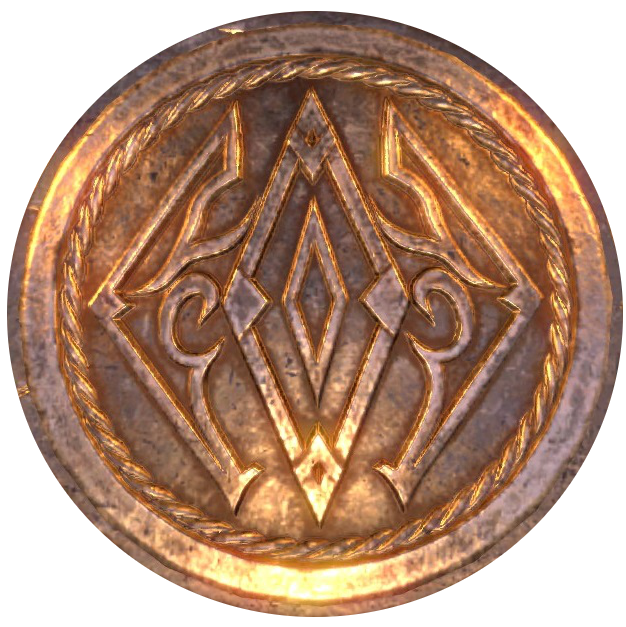
Type of society: Feudal Absolutism.
Primary mean of production: Land
Method to force labor: Violence.
Opposing classes: Feudal Lords vs Bourgeoisie.
Dominant estates: Priests, Warriors, Battlemages.
Basic economic resource replenish method: Wars.
Commentary: the early 1st Era feudal revolution and Ayleid Empire "civil war" led the human slave masses to overthrow their Ayleid masters and destroy their city states along the foundation of the human-based feudal kingdoms. The land owning priests and warriors of the Alessian Order constructed a feudal absolutist state based on a strict monotheistic religion and violence both based on the Alessian Doctrines they have enforced in 1E 361 throughout Cyrodiil and Northern Tamriel - a state very similar in it's essence to the Dunmeri one. The population of the Empire could have remembered the times they were slaves themselves thus the only way to stay the feudal course, to stay powerful and boost wealth was to conquer other lands constantly. While the feudal class fought exhausting their working class (bourgeoisie and peasantry), the merchants of the Nibenay Valley along the artisans and frontier-men of the Western Colovian kingdoms began to become aware of their class identity and interests. The contradictions between the feudal type of society and the bourgeois economic basis caused a 10 year civil war named the War of Righteousness (1E 2321-1E 2331) - the Alessian Order and the First Empire itself ceased to exist. While there is no official information about how or who fought the War, the Empire's former territories solidified their independence, and its heartland, Cyrodiil, split into the Western and Eastern parts that continued to diverge culturally over the following centuries - a very useful circumstance for the burgeoning bourgeoisie.
Back to contents.
The Second Empire (1E 2703 - 2E 430):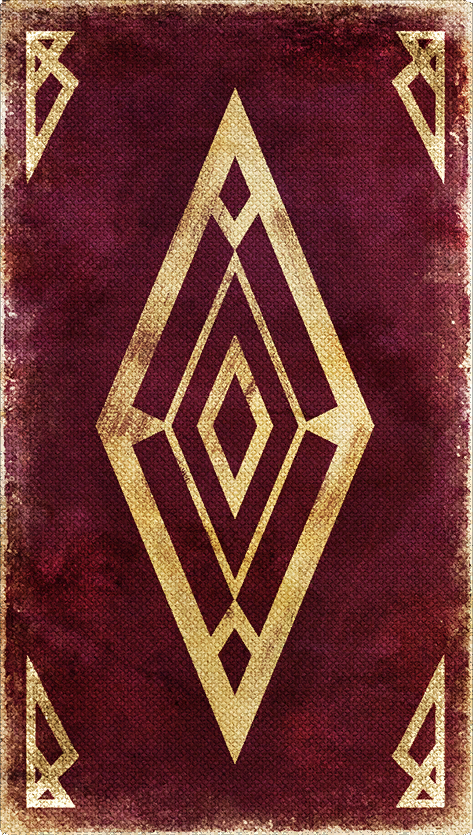
Type of society: Feudalism.
Primary mean of production: Land.
Method to force labor: Violence.
Opposing classes: Feudal Lords vs Bourgeoisie.
Dominant estates: Feudal Lords, Merchants & Artisans.
Basic economic resource replenish method: Wars.
Commentary: this time is characterized by the slow destruction of old feudal order remnants of the Alessian Empire and the creation of the new bourgeois one. This is the dusk of Imperial feudalism. The Akaviri invasion allowed Reman to unite many separate kingdoms under his leadership after a 372 years of feudal disunity. His successors just like the Alessian Empire's aristocracy, being the same feudal lords, began to conquer Tamriel again. Though this time they were wise enough not use brute force only and not to propagate their religion - this time diplomacy and trade became their weapons. The policy performed by Reman II made his reign remembered as the Golden Age, it made the imperial bourgeois class really strong and thus caused two major socio-economic events of this age - the Martial Law and the Guild Act. The Potentate Versideu-Shaie came to power on Sun's Dusk 22nd 1E 2920 - in 16 days after a Morag Tong assassin killed the last Emperor Reman III. Shaie undoubtly served the interests of Morrowind feudal lords because he ratified the Cervant Truce that ended the disastrous Four Score War. But then he engaged in a relentless series of internal campaigns against his own vassals among the feudal lords which finally resulted with his victory. But the cost of the campaigns was immense, resulting in the impoverishment of both the Empire and its constituent kingdoms. In an effort to maintain order he declares martial law and bans all the private armies of the vassal kingdoms in 2E 283 thus suppressing local feudal armies and weakening their lords at the same time strengthening the Imperial bourgeoisie. In 2E 321 he dropped the other shoe and almost banned feudalism itself by signing the Guild Act - a legislative act that codified the practice of guilds throughout the Second Empire. The Guild Act officially sanctioned the guilds of Tinkers, Cobblers, Prostitutes, Scribes, Architects, Brewers, Vintners, Weavers, Ratcatchers, Furriers, Cooks, Astrologers, Healers, Tailors, Minstrels, Barristers, and others, most importantly including the Guilds of Mages and Fighters. The country entered its capitalist age. Though the guilds were required to pay levies to the Empire and to pay for any expansions in exchange for protection and encouragement from the Empire, they began to spread their business affairs over all the lands effectively erasing the last feudal throwback elements. In three years after the Act was signed Versideu-Shaie was assassinated by Morag Tong. Class treason rarely stays unpunished.
Back to contents.
The Third Empire(2E 854 - 4E ...):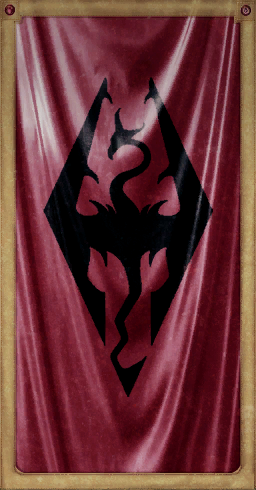
Type of society: Imperialism.
Primary mean of production: Capital.
Method to force labor: Economical.
Opposing classes: Bourgeoisie vs Wage-workers.
Dominant estates: Business magnates.
Basic economic resource replenish method: Trade & investments.
Commentary: after centuries of class struggle the Third Empire is founded by a soldier supported by capital. It enters into the age of Imperialism, it begins to enter the highest level of capitalism development. Emperor Pelagius Septim II, who inherited a debt-ridden Empire when he ascended to the throne in 3E 82 dismissed the entire Elder Council and allowed only those willing to pay great sums to resume their seats. He encouraged similar acts among his vassals, and though he returned prosperity to Tamriel, his critics cite consequences. The most long-term effect of selling off seats on the Council was, obviously, that it became composed of the wealthiest people in the Empire. The collective power these individuals wielded would often prove equal or greater to that of the Emperor, and vicious power struggles emerged as a result. Thus in 3E 82, after a 3 655 years of struggle, the Imperial bourgeoisie finally captured the parliament and took all the plenitude of the power into their hands. This is the date of the Great Imperial Bourgeois Revolution, the Imperial feudal class was finally overthrown. The necessity to capture new commodity markets resulted in the creation of international corporations and regional monopolies. The East Empire Trading Company established in 3E 124, supported by the Imperial Legions gains a monopoly on multiple trade goods in the Imperial provinces, the Blackwood Company established in the imperial province of Black Marsh operates in Cyrodiil and rivals the Fighters Guild but falls in the competitive struggle. Lesser companies like the Imperial Trading Company also begin to rise effectively. This is the time of birth of globalization and the industrial economy.
Back to contents.Edited by Aigym_Hlervu on 30 December 2019 22:365 -
Aigym_Hlervu✭✭✭✭✭DUNMER
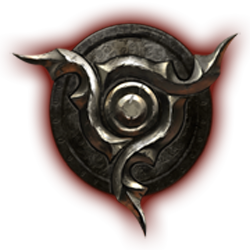
Type of society: Feudal Absolutism.
Primary mean of production Land.
Method to force labor: Violence.
Opposing classes: Feudal Lords vs Bourgeoisie.
Dominant estates: Priests & Mages (Houses Indoril & Telvanni), Warriors (House Redoran), Slave owners (House Dres), Merchants & Artisans (House Hlaalu).
Basic economic resource replenish method: Serfdom, Slaver Raids.
Commentary: we, Dunmer, are a classical feudal society developed to it's last and the most horrific level of Absolutism - the same type of the society as the ones of the pre-Meiji Empire of Japan, Tsarist Russia, Ottoman Empire and other similar XIX century autocracies IRL. The primary mean of production of Morrowind (it's land) has been degrading during the early and middle period of feudal development, thus feudal lords had to exploit it harder and harder using peasants', serfs' and slaves' hard labor and oppressing the Ashlander Tribes by capturing their tribal territories like Ald'Ruhn grounds. Western wage-workers may freely change their bourgeois employers (guilds, companies), they may work for multiple of them or found their own guilds and companies. But the working class of Morrowind is largely mancipated, the majority of the populace are actually serfs and slaves unable to change a feudal lord they work for (there's no way to change a Great House affiliation). Great Houses are not guilds- or companies- like organizations - they are feudal societies which own land and everything on it. It is largely the matter of birth and marriage to change a Great House, though some serfs can buy personal freedom within it through good service and even fewer may become owners of land and servants themselves. The local bourgeois class destined to overthrow and destroy the feudal lords uses capital as the mean of production instead of land, but due to the lack of political power is forced to produce commodities necessary to the Feudal class first (most notable are the municipal engineering of the Redoran city of Balmora and the Vivec City) without the ability to get extra profits - this contradiction between the classes is well described in the Hlaalu letter of complaint. The Treaty of Armistice led to the first early Dunmeri bourgeois revolution which led to the change in the governing feudal body (the Grand Council of the Dunmeri Great Houses) which gave many privileges to the bourgeois House Hlaalu while many feudal lords committed suicide or were killed. The change of the ruling class supported by the foreign imperial capital (represented by the Imperial Legion, the Imperial Cult, the Blades, the East Empire Company, the Guilds of Fighters, Mages and Thieves, etc.) and the local business elite and factions (Camonna Tong, the Twin Lamps, etc.) stepped up into the open confrontation between House Hlaalu and the old feudal order (lots of them, e.g. King Hlaalu Helseth vs Almalexia). But the decline of the Third Empire weakened House Hlaalu positions and the feudal reactionists destroyed House Hlaalu thus delaying the inevitable - the second bourgeois revolution. The extrapolation of the further events shows us Morrowind either as an even more nasty absolutist state (due to the loss of Vvardenfell and the lands ravaged by the Argonian invasion) ruled by the old feudal class under a formal leadership of a new autocratic monarchy or the old feudal Grand Council itself. Or, in case the Third Empire survives, the second bourgeois revolution will make Morrowind a very different state. Nevertheless it is only the matter of time before the bourgeoisie takes power again.
Back to contents.Edited by Aigym_Hlervu on 30 December 2019 22:376 -
Aigym_Hlervu✭✭✭✭✭ASHLANDER TRIBES
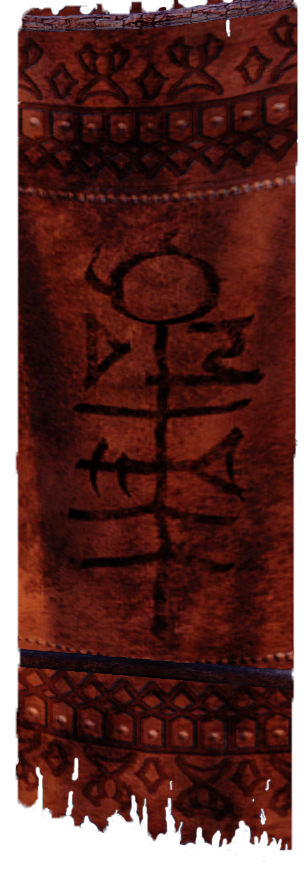
Type of society: Primitive communism.
Primary mean of production: Guar herds.
Method to force labor: None.
Opposing classes: None.
Dominant estates: Hunters, Gatherers, Herders.
Basic economic resource replenish method: Hunting, Herding, Fishing, Raids.
Commentary: the Ashlander society is the pre-feudal type of the Dunmeri society, it consists of multiple tribes which are the primary rivals of the more developed feudal House Dunmer society. The Ashlanders' type of society allows them to roam the most inhospitable and poor lands of Morrowind - this is the only reason the feudal lords of the Great Houses has never had any interest of conquering them entirely (see the feudal primary mean of production in the Dunmer section above). They are likely to integrate into our Great Houses' feudal society especially after the fall of the Tribunal.
Back to contents.Edited by Aigym_Hlervu on 30 December 2019 22:376 -
Aigym_Hlervu✭✭✭✭✭NORDS
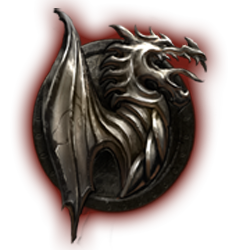
Type of society: Feudal.
Primary mean of production: Land.
Method to force labor: Violence.
Opposing classes: Feudal Lords vs Bourgeoisie
Dominant estates: Warriors, Merchants & Artisans.
Basic economic resource replenish method: Conquests.
Commentary: due to the destruction of their primary mean of production (Atmoran lands) Nord feudal lords were forced to replenish it by any means possible. The only way possible to do that led them to conquering the modern Skyrim, mainland Morrowind, most of the Nibenay Valley and High Rock lands before loosing to a tribal society of Resdayn. Their further integration into the Empire leads them to their first inevitable capitalist revolution with the Stormcloack Rebellion as the reaction of the old feudal order. The results of the Stormcloack Rebellion will show us if Skyrim becomes the land of merchants and artisan guilds without passing into the late feudal (absolutist) age or not.
Back to contents.Edited by Aigym_Hlervu on 30 December 2019 22:375 -
Aigym_Hlervu✭✭✭✭✭BRETONS
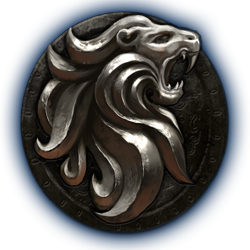
Type of society: Feudal.
Primary mean of production: Land.
Method to force labor: Violence.
Opposing classes: Feudal Lords vs Bourgeoisie.
Dominant estates: Warriors, Merchants & Artisans.
Basic economic resource replenish method: Conquests.
Commentary: a classical feudal society largely agrarian and hierarchical. Most Breton cities are sprawling trade hubs, and most of the people are either middle-class peasants or destitute beggars. Everything is just the same as in Skyrim. Their further integration into the Empire leads them to their first inevitable capitalist revolution the same way the Stormcloack Rebellion is the reaction of the old feudal order in Skyrim.
Back to contents.Edited by Aigym_Hlervu on 30 December 2019 22:384 -
Aigym_Hlervu✭✭✭✭✭ARGONIANS
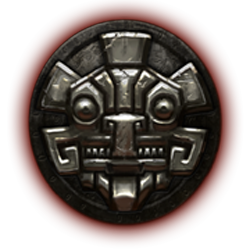
Type of society: Primitive communism.
Primary mean of production: Animals.
Method to force labor: None.
Opposing classes: None.
Dominant estates: Hunters & Artisans.
Basic economic resource replenish method: Hunting.
Commentary: not much can be told here - the Argonian tribes are not much different from the ones of the Dunmeri Ashlanders and Reachmen. Their military campaigns show how organized this type of a society can be but also shows its downsides. The xanmeer buildings and some other traces of the Argonian history tell us about some other type of society Argonians had in the past: bloody sacrifices, the worship of Sithis and the need to gather a huge labor force at one place, make me think they had some kind of an ancient slave society similar to the ones of Egypt, Aztec and Mayan Empires IRL. Anyway today Argonia is unfit for plantations and thus neither for a slave owning society nor for feudalism and capitalism. Moreover Argonians as well as the Bosmeri people seem to prefer to live in the Aurbic Now, showing relatively little regard for the ways of former and future ages. Argonians usually live in tribes, each having their own customs as well as differing appearances. They hunt wildlife for food and to make much of their equipment of animal parts (though some tribes use their dead's parts with the same purpose!). They are a society of good merchants, woodcarvers and alchemists.
Back to contents.
Edited by Aigym_Hlervu on 30 December 2019 22:383 -
Aigym_Hlervu✭✭✭✭✭REDGUARDS
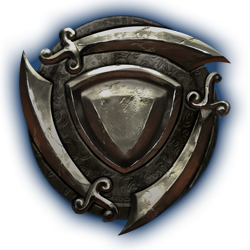
Type of society: Capitalism.
Primary mean of production: Capital.
Method to force labor: Economical.
Opposing classes: Bourgeoisie vs Feudal Lords
Dominant estates: Crowns, Forebears, Merchant Lords.
Basic economic resource replenish method: Trade.
Commentary: the history of Redguards seems to be very similar to the one of Nords but it is not that simple. It is unknown what happened to Yokuda, but all we know is that the Ra Gada striking force was the first group of Redguards to settle in Hammerfell before the rest of their kin followed them. Crowns and Forebears are never said to be the descendants of two opposing classes of Yokuda, contrarily they seem to be of the members of same warrior estate of the Yokudan society differing only in time of their arrival to Tamriel. This allows us to speculate which type of society they had before the destruction of their homeland: since we don't have a single sign of the Yokudan working class members we can suppose the Redguard ancestors left them all to die while taking all the ships available and sailing East. Today apart from urban trading settlements, much of the Redguard society is populated by semi-nomadic tribes. During an internal war between the two tribal confederations of the Crowns and the Forebears the capitalist Empire managed to absorb the Redguard tribes in 2E 864 and civilize them the same way capitalist companies converted tribal Arabian societies into the richest capitalist societies of the world in XX century IRL.
Back to contents.Edited by Aigym_Hlervu on 30 December 2019 22:385 -
Aigym_Hlervu✭✭✭✭✭KHAJIIT
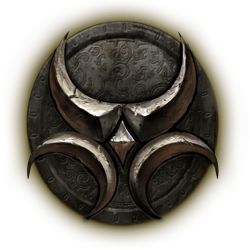
Type of society: Feudalism.
Primary mean of production: Land.
Method to force labor: Violence.
Opposing classes: Feudal Lords vs Bourgeoisie
Dominant estates: Warriors, Merchants & Artisans.
Basic economic resource replenish method: Conquests.
Commentary: Suprisingly for a Dunmer like me, Khajiit are one of the most developed societies among other races of Tamriel. The Khajiiti society is split in two: the civilized jungles and river basins of southern Elsweyr, which have ancient mercantile traditions, a stable agrarian aristocracy based on the exportation of saltrice and Moon Sugar, and a thriving artistic culture, which contrasts greatly with the nomadic tribe or pride-centric Khajiit of the dry northern wastes and grasslands, where aggressive and territorial raiders occasionally unite under a single chieftain. Anequina became the center of the Khajiiti feudalism, developed a disciplined warrior culture, but Pellitine as the Khajiiti capitalist center had wealth enough to hire mercenaries thanks to its fertile lands and the cultivation of Moon Sugar derived from the Tenmar Forest which is the personal domain of the Mane - the spiritual unofficial leader of all Khajiit. The Mane.. Moon Sugar.. The Khajiiti religion is indeed the opium of the people. In spite of some Hindu entourage the socio-economic formation is very similar to the one existed in Renaissance Europe with the Bishop of Rome as the major feudal lord and other feudal kingdoms under his spiritual authority.
Back to contents.
Edited by Aigym_Hlervu on 30 December 2019 22:393 -
Aigym_Hlervu✭✭✭✭✭ORCS
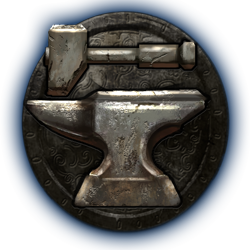
Type of society: Primitive communism.
Primary mean of production: Craft Industry.
Method to force labor: None.
Opposing classes: Tribal chiefs vs Tribesmen.
Dominant estates: Smiths, Hunters, Gatherers.
Basic economic resource replenish method: Trade, Smithcraft, Hunting, Herding, Fishing, Raids.
Commentary: the semi-nomadic Orcish tribes are a society very similar in it's type to the Dunmeri Ashlanders' one, though with only one exception - they are at their final stage of the primitive type of society and are very close to feudalism. The communal relations between relatives are still very strong but the social inequality begins to differentiate common tribesmen from their chieftains and kings. The Orcish type of society and their city of Orsinium are similar to the society type of the semi-nomadic Turkish Oghuz tribes especially its Seljuq branch of the XIII century and the Sultanate of Rum IRL respectively. The Orcish relations with the Breton feudal kingdoms and the Empire are also very similar to the Seljuq Turks relations with the Crusader Kingdoms and the Eastern Roman Empire IRL.
Back to contents.Edited by Aigym_Hlervu on 30 December 2019 22:393 -
Aigym_Hlervu✭✭✭✭✭ALTMER
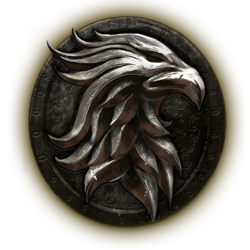
Type of society: Fascist.
Primary mean of production: Capital.
Method to force labor: Violence.
Opposing classes: Bourgeoisie vs Working class.
Dominant estates: At the top are the Wise, teachers and priests, followed by Artists, Princes, Warriors, Landowners, Merchants, and Workers. Below Workers were the beasts, such as the enslaved goblins.
Basic economic resource replenish method: Wars.
Commentary:
The laws of socio-economic development work on every society be it a real life one or a fictional, because the author of any art product creating a particular fictional society always tries to make it credible and logically explained in it's depiction, and has no other choice than to create the one based on the laws of the socio-economic development IRL. When we compare two societies, we have to compare the natural environment both societies lived in, then the types of property on the means of production, then the types of their economy, then their dominant and subordinate socio-economic classes, then you have to compare their socio-economic formations, and finally the type of state that is based on previously mentioned things and determines the social laws, policy, views on social ethics, morality, good and evil, etc. - everything else. This will show us that, say, the Germanic tribes have nothing equal to the WW II Germany except the fact that the people of both societies are relatives. The time span itself is indifferent here - it just shows the time it took a particular society to develop from one formation to the other, and the way it did it. Nothing new in this science has been invented in the recent century. This is why the nature of the 1st and the 3rd Aldmeri Dominions was the same all the way along. If you want an approximate example IRL, than comparing those two Dominions should be like comparing, say, the Germany of 1933 -1938 and the same Germany of 1939 - 1944.
The history of the Summerset Isles in the First Era and most of the Second is very much removed from the rest of mainland Tamriel's one, but what we do know is that in ancient times the development of the primitive Aldmeri tribes within the small territory of the Summerset Isles caused the creation of the first religion which began to destroy the ancestor worship of the tribes substituting it with a state religion developed to control and suppress the masses by declaring the nobility to be the direct descendants of the gods. Many tribes disagreed and fled east. Those were the Ayleid, Chimeri, Orcimeri, Maormeri, Bosmeri and other tribal confederations. But those who stayed enslaved goblins and other races and created a society full of racism, Altmeri supremacy and strictest hierarchy similar to some ancient slave owning empires like Rome, Egypt, Greek city states, etc. The books like Antecedents of Dwemer Law, Light Armor Forging and the Pocket Guide to the Empire show us the Altmeri society was not just nationalist - it enslaved goblins, Dunmer and possibly other races as well.
Here are some commentaries on the type of Altmeri state, it's government as an organization. The Sapiarchs, in general, as an entity, live heavily guarded and protected by the local law in insane wealth in comparison to any of the lower - "At the top are the Wise, teachers and priests, followed by Artists, Princes, Warriors, Landowners, Merchants, and Workers. Below Workers were the beasts, such as the enslaved goblins, who the Aldmer used to perform the jobs beneath the dignity of the very least of them".
Social structure. As we see it, unlike in the less progressive feudalist societies, the Landowners of the Altmeri one are not the dominant class there. They are even below artists and warriors. We also see that the workers, the majority of any society, are the lowest class there with only the goblin slaves treated worse. Since they do have slaves, but they do not have the slavemasters as a separate class - that means that the Altmeri society is 100% not a primitive chattel slavery. So, if the primary mean of production that defines the level of wealth (and thus power) is not measured neither in slaves, nor in land (like it happens in Morrowind where the richest mages of House Telvanni still fight other Houses for land - not assets or money), than it is only one thing possible - it is money, capital, commercial assets. Those who control the finance and commercial activity, control power there, just like it is in the Empire after 3E 82, the year Emperor Pelagius II will dismiss the Elder Council, so only those willing to pay great sums will be allowed to resume their seats. So, the only logical conclusion that can be made here is that as a socially progressive state (the most progressive of all in 2E 582, by the way!), the Summerset Isles are governed by financial elite who trains and appoints kings, guides them and thus defines all the policy, laws and all spheres of life, 223 in their number, with the spheres of Current Chronologies, Oblivion Studies, Indoctrination, Altmeri Heritage, Enchantment, Mythohistory, Daedric Fallacies, Selenology, Divine Orthodoxy, Foreign Observations and many other among them.
The Sapiarchs are not just scholars - they are active influential statesmer. Not mentioning that the Sapiarchs literally appoint High Kings based on the decision made after "consulting with prophecies" (the thing only they are able to do and thus to control it) and a 3555 days of the Ceremoniarchy process of "training" a future monarch, two observations here should be mentioned here: as you see it, one of those spheres I mentioned above is the Sapiarchy of the Altmeri Heritage and the reason why I have mentioned it is because the Thalmor was originally a bureau responsible for safeguarding Altmeri heritage that now functions as the executive arm of the Aldmeri Dominion with it's Fists of Thalmor acting as an effectuation unit of officers deployed when stern measures must be taken to enforce adherence to Thalmor dicta. "Dicta" - as it is said there. Perhaps Aicantar forgot to add "-torship". So we have a Sapiarch of Altmeri Heritage and a governmental enforcing service responsible for safeguarding Altmeri Heritage. Perhaps, the corresponding Sapiarch is just an advisor to them? Maybe. Another of those spheres of "pure study and advice" is the Sapiarchy of Indoctrination led by Sapiarch Aicantar of Shimmerene I've mentioned earlier. This Sapiarchy is a much better evidence that the Sapiarchs are not just scholars and advisors - they are the ones who define policy. Among many of his writings Aicantar is the author of the Thalmor Handbill and the one who endorsed the Thalmor response to the citizen requests. Since he is not just a mere scholar, but a statesman bearing the power to govern, it is very interesting to see what doctrines the Sapiarch of Indoctrination publishes. Here are some of his quotes:
1. On Dunmer - "Our unfortunate cousins of Morrowind are double apostates .. have been doubly punished by divine curse for their sins of hubris and heresy. .. they do have certain, shall we say, talents that have been honed by hardship, skills that will enable them to find appropriate employment in the Tamriel-wide Dominion to come. If they trust to our wisdom and guidance, they will survive, and even thrive, as citizens of the Dominion. Once they earn that status, of course";
2. On Bretons and Orcs - "The Bretons are also so indiscriminate that they have accepted the bestial Orsimer as allies. (Orsimer! Can you imagine?) Though capable of mustering substantial brute force, there is no evidence that these degraded hybrids have the wisdom or learning to deal with the mystical disaster now threatening the Mundus. They must be disciplined and subdued as rapidly as possible";
3. On Bosmer and Khajiit - "Our Bosmeri hunters must provide food for our civilians as well as our soldiers. Our Khajiiti traders must provide goods as well as weapons";
4. On all human nations - "heedless and impetuous human nations";
5. On High Elves - "Elves shall rule Tamriel from White-Gold … this time, forever.";
6. On Nords and Argonians - "simple Nords and the slave-lizard Argonians".
As you see it, they have a place for everyone in their future they are planning to build - he's speaking of common people, not the ruling structures, as you see it. Some phrases might seem not that strong - below you'll see what the Dominion military did to Argonians.
On the regular Dominion Army. I thought that the burned settlements and towns, murdered civilians, families who lost their relatives and necromancy on the battlefield and other crimes performed by the Covenant in the ESO Ebonheart Pact solo campaign were the worst things of the Three Banners War. But no, then I came to Argonia. The regular Dominion military commited things unimaginable even to the worst of the Dres slavemasters and Covenant invaders combined. Here are just three common things of what the Dominion did to a playable sentient humanoid race:
1. They literally eat children - "A Dominion dryskin cooked and ate one of our unhatched eggs! .. Make the egg he consumed his final meal! Spill his blood upon the ground, where it may feed the roots of future generations. Show we fight to protect our young".
2. They commit mass slaughter of children - "They murdered our hatchlings, our children. Why?".
3. They commit atrocities in Argonia acknowledged even by the Dunmer - "They bring nothing to this land but abomination".
4. They openly perform atrocities and mass murder sanctioned and directly ordered by their high command:
"Private Glalor: They're almost like the spinners from back home. Couldn't we spare them, sir?
Lieutenant Aldononde: "What part of "no survivors" don't you understand, private? These savages are the enemy. Once they complete the ritual, they die like the rest".
This is how the Dominion fights a war against Argonians whom they simply call slave-lizards and savages. It's not hard to imagine how would they fight other races. Anyway, these cases are just some of the worst ones, the ones the developers were able to show by means of the smaller scale game mechanics and quests. How many such cases could be registered from the in-lore event scales?
Conclusion. Here I remind that we are speaking of the Second Era Dominion only - the one some players called not that monstrous in comparison to the Dominion of the 4th Era. Those numbers in the Dominion name mean nothing, actually - all along it has been the same highly developed Tamrielic state ruled on the basis of kinship and racial purity by a small circle of members of the financial elite who appoint the local High King, control the society through various "spheres of study", "Thalmor Dicta" and the Justiciars, they define policy and control local laws, ethics, etc., with the majority of their population (workers are always the majority in any population) being placed at the bottom of the society ladder close to thd goblin slaves and thus treated the worst, a state tolerating no other religion and beliefs, in it's foreign policy - a state planning and performing the open terrorist vengeance against common people of other countries to whom they plan to give a "proper" place under their reign or eliminate them entirely if they refuse to work for them. We see a bestial hatred directed towards other Tamriel races and atrocities unimaginable in the Tamrielic history since the age of the Ayleid Empire and the Falmeri fall caused by the Dwemer. Imagine what happens if the Dominion wins and conquers all of Tamriel or at least a large part of it. There are many definitions of the phenomenon portrayed in the image of the Aldmeri Dominion. Since definition is a complex of features immanent to an object or a phenomenon throughout the process of it's establishment and development, you can choose any of them you like, but I guess the most brief among them might be this one offered by a man who faced the phenomenon toe on toe: "Fascism is the open, terrorist dictatorship of the most reactionary, most chauvinistic, and most imperialist elements of finance capital".
Back to contents.
Edited by Aigym_Hlervu on 26 October 2020 00:303 -
Aigym_Hlervu✭✭✭✭✭BOSMER
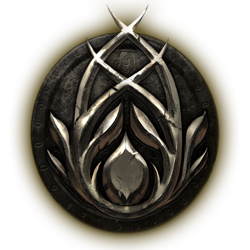
Type of society: Primitive communism.
Primary mean of production: Animals.
Method to force labor: None.
Opposing classes: None.
Dominant estates: Hunters & Merchants.
Basic economic resource replenish method: Hunting, Herding.
Commentary: though it might be unusual to read it, but the Bosmer society is very likely to be the least developed of all in terms of socio-economic formations. The reason is the Green Pact of course. The Green Pact makes Bosmer the most ecenomically dependent on foreign countries of all the Tamriel societies. No agriculture, no metallurgy (rare forges can't make any difference), no woodworking. This means no chattel slavery society, no feudalism, no absolutism, no capitalism - exactly the picture we see in the game. Bosmer are heavily dependent on good relations and trade with other races, as the Green Pact forces them to import metal weapons and tools, and timber needed to make their homes, arrows, and other wooden commodities. Their own primary goods for trade include hides, river pearls, and finger-bone charms made from the magically-charged hands of their dead wizards.. Not much. But what makes them so unique, so welcome guests to all other races in spite of their backward socio-economic formation are their ability to adopt outside of Valenwood and.. their numbers - Bosmer outnumber all other Mer of Tamriel. There's no better way to build an army than to hire those Bosmer in great quantities.
Back to contents.Edited by Aigym_Hlervu on 30 December 2019 22:403 -
Aigym_Hlervu✭✭✭✭✭CLOCKWORK CITY

Type of society: Socialism.
Primary mean of production: Industrial enterprises.
Method to force labor: Economical.
Opposing classes: Wage-workers vs Bourgeoisie.
Dominant estates: Clockwork Apostles, Auxiliaries, Tarnished.
Basic economic resource replenish method: Production of the means of production.
Commentary: a pure socialist internationalist state based on two general socialist principles: 1. From each according to his ability, to each according to his contribution. 2. Almost free basic consumer services to each working member of the society (food, medicine, dwelling, education, transport, etc.). The goal of the society is to build "Tamriel Final" - communism, I suppose since it is so inspired by the Dwemer technologies, though it is not stated directly. Four major groups of people exist in the Clockwork City: the Clockwork Apostles - scientists, naturalists, engineers, heads of the enterprises. To become an apostle, you need to have great skill in magic or machinery or have some other skill worthy. Those who lack the skill in machinery or magic required to become a Clockwork Apostle but have another desirable skill are referred to as Auxiliaries. They can be skilled adventurers for hire or they may have a trade and be merchant, craftsmen, factory workers and perform other community services. Workplaces are also predefined: merchants sell their goods in the Chancel of Transaction, craftsmen reside in the Hall of Refined Techniques, carpenters go to sell their furniture in the Domicile Enhancement Hub, etc. Those who do not wish to work for the good of all society are cast out and join the ranks of the Tarnished. The Tarnished live in the slums of Slag Town and in the outlaws refuge. They feel abandoned by the Clockwork Apostles and often have to rely on themselves to get by because the apostles do little to help the Tarnished out - see the 1st general socialist principle mentioned above to understand why. The one who does not work, does not eat. The fourth group is represented by outsiders who are called exodromals. As any socialist state IRL the borders of the Clockwork City are closed - few may travel there, fewer may become citizens, even fewer can leave it. A fully self-sufficient society. Just like a crew of a submarine. What did you expect from a society living in such a harsh environment like the Clockwork City? Capitalism? They'd all die there - the City is not Tamriel with its rich flora & fauna and good climate. So socialism is the only way to survive there for each denizen and thus for the entire society.
Back to contents.Edited by Aigym_Hlervu on 26 October 2020 00:354 -
Aigym_Hlervu✭✭✭✭✭DWEMER
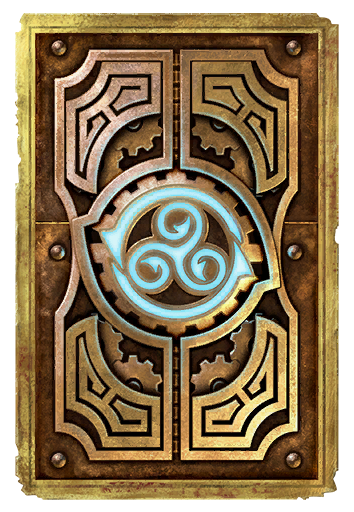
Type of society: Communism.
Primary mean of production: Industrial enterprises.
Method to force labor: None.
Opposing classes: None.
Dominant estates: scientists, naturalists, engineers, heads of the enterprises.
Basic economic resource replenish method: Production of the means of production.
Commentary: the "great Second Empire freeholds" as they called it themselves.. What was the first one? From our primitive tribal positions we, Dunmer (well, Chimer during that time, of course) always treated Dwemer as our equals at most, another Great House or something, never realizing the scales of the socio-economic abyss between us. An entirely dialectically materialist communist society which cast out those "foolish" religious rituals, preferring Reason and Logic only, based on a communist motto "From each according to his ability, to each according to his needs". Not only minimal needs satisfaction as that Clockwork City socialism maintains - all the materilistic needs a Dwemer could ever desire. The industrial economy maintained mostly by sentient machines could supply them with everything a twilight Dwemer genius could ever imagine: supreme materials (Dwemeri metal, Aetherium), energy sources (steam, lava power plants), possibly healthy food of any taste, best medicine, supreme technical consumer goods (animunculi, airships, sentient machines, mechanical observatories and lighting systems, Dwemer Miters which served as mobile cell phones, etc.) that continued to work for thousands of years without any maintenance. Humph.. If only my cell phone worked at least a 1/100 part of the time, if only the industry would ever be interested in such warranty periods!.. Ok, have you seen those deepest Dwemer ruins? A single clan could build them! What kind of heavy machinery they operated?.. We don't know much about the true Dwemeri social basis but all we do know that they've built a very highly industrialized self-sufficient society in an enclosed almost unreachable space. Familiar indeed, just look up at the Clockwork City section up there.
Back to contents.Edited by Aigym_Hlervu on 30 December 2019 22:403 -
Aigym_Hlervu✭✭✭✭✭CONCLUSION. THE THREE BANNERS WAR. CHARACTER CLASSES
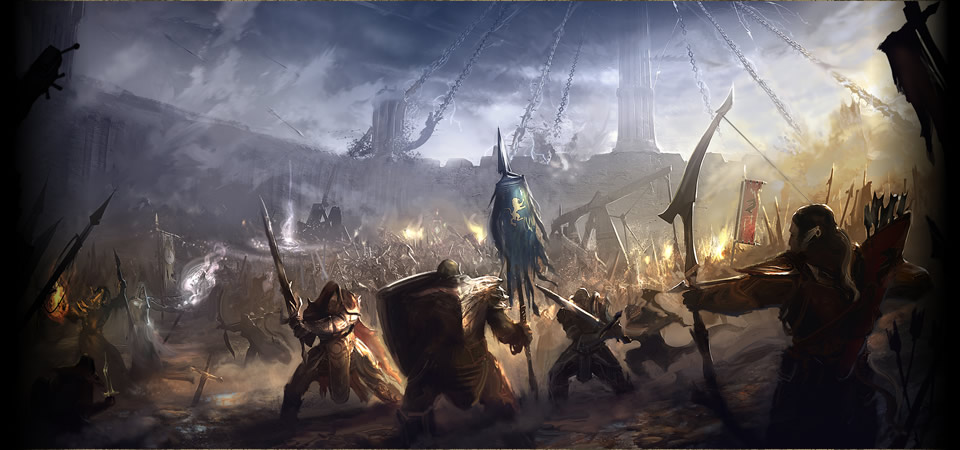
Here I'd like to share the views on socio-economic aspect of the war so many of us fight in Cyrodiil. Some of you might think this war is just a struggle for power, a struggle to rule or to stay free - yes, it is indeed, but it is only a consequence, not the reason. Having read the previous chapters you now see what societies are engaged:
Aldmeri Dominion: a fascist capitalist Altmeri state with it's less developed and internally separated satellites;
Daggerfall Covenant: a classical feudal kingdom supported by a bit less developed but strong tribal societies;
Ebonheart Pact: a union of two strong feudal states supported by a primitive tribal confederation.
The war started in 2E 580 and there are certain reasons of it: Molag Bal, the Planemeld, etc., but the major internal event of the Empire which preceded the war was the Guild Act I've described in the Second Empire chapter above. The chronology of what I say here is the following:
2E 321 - the Guild Act is signed.
2E 430 - Potentate Savirien-Chorak dies after his 106 year rule ending the Second Empire.
2E 580 - the War begins.
2E 896 - the Third Empire proclaimed.
3E 82 - the final victory of the tamrielic bourgeoisie.
This war is generally not the war of states, armies, individuals or even Alliances - this is definitely the Guild War first. The overwhelming majority of the participants are players who are members of 1-5 guilds each. Guilds are the first bourgeois enterprises of the feudal societies, guilds are the first to directly claim keeps and resources while field armies, Alliances and feudal lords are secondary. This war is a bourgeois competitive war of numerous guilds which will strengthen them and bring considerable power. The only parties who suffer losses here and win nothing are the presently dominant feudal lords and common folks.
By the way, speaking from the same perspective: Sorcerer, Nightblade, Dragon Knight, etc. are neither classes nor estates and not even professions. Here is my definition of those classes: a character's class is a predefined complex of skills and knowledge, a result of a particular course of study which grants a character the ability to perform certain functions within the social division of labour in any system so that a character may specialize (specialization). In other words, game class is a type of education a character acquires. For example, characters with a Sorcerer education can have many professions: a healer, a tank, an enchanter, a soldier, a scholar, etc. It's only the matter of certain skills they use, their views, beliefs and.. some economic demands - the benefits of some educational programs may be changed from patch to a patch. That's it.
Thank you much for reading, I hope that was interesting! Have a good day!
Back to contents.Edited by Aigym_Hlervu on 30 December 2019 22:4111 -
gepe87✭✭✭✭✭
✭Very interisting article.
Just a quick note about alliancesl:
I see DC, and particulary Breton society, a mercantilism: a developed feudalism, focused in trade routes (it's Emeric own agenda) as well a regulated market and less inclined to warmongering (mutual defense, territorial defense).
It's hasty to view 1st AD as fascism (Veiled Heritance isn't supported by Ayreen, but 3rd one is for sure a autocratic government with some radical behaviour.
I see them as a form of oligarchy (Bosmer treethans and their colectives/tribes; Khajitti and Altmeri aristocracy) without any religious support as main cause.
I can agree with EP, in fact, Nords are close to pure feudalism (more warmongering: mutual defense, territorial defense, Highking as 'head of state' due to significant role over the remaining holds, in this case, Western Skyrim) , Argonians as primitive communism (compared to a developed Dwemer society).
I see Dumner society as an oligarchy based on religious fundament (a Theocracy crossing feudalism - Tribunal overseeing major groups, while Councillor play a vital role).Gepe, Dunmer MagSorc Pact Grand Overlord | Gaepe, Bosmer MagSorc Dominion General
If you see edits on my replies: typos. English isn't my main language2 -
Aigym_Hlervu✭✭✭✭✭I agree with you, @gepe87, I think I should have made it more detailed regarding the historical periods of the development of the Altmeri society the same way I did in the Empire part. Maybe I'll have some time to add that First and Second Aldmeri Dominion parts to the Altmeri section some day. Regarding mercantilism and oligarchy - this is largely the matter of terminology we use. Some people might understand the term "Oligarchy" as the "financial banking elite" only rather than the "power of a small number of people distinguished by nobility, wealth, education or corporate, religious, political, or military control". So, I haven't used that term exactly because of that, though I agree with your thoughts.
I haven't used the term Mercantilism either because in some definition systems it is viewed as an economic policy that can be provided within a certain type of society, but not the type of society itself. But all the theories share almost the same views, say, on feudalism. For example, our local historiography and scientific terms do not use that "Primitive communism" term I used up there - the same notion is called a bit different there, it shares nothing with the words "primitive" and especially "communism", so I was not even aware that "primitive communism" had existed as a term somewhere until I studied it from some foreign perspectives. These are some cultural differences we have IRL, I think, but I tried to use more internationally equal terms in my Guide as far as I could. Thank you for reading ! Edited by Aigym_Hlervu on 27 December 2019 10:320
! Edited by Aigym_Hlervu on 27 December 2019 10:320 -
Saucy_Jack✭✭✭✭✭
✭✭✭✭✭This guide also doesn't make any mention of the purely pie-based economy that a certain gentleman is trying to get off the ground as an alternative to the brutal [insert economic system here] that the various races/empires employ.
(The guide is excellent in every other way though!) Edited by Saucy_Jack on 27 December 2019 13:54ALL HAIL SNUGGLORR THE MAGNIFICENT, KING OF THE RNG AND NIRN'S ONE TRUE GOD! Also, become a Scrub-scriber! SJ Scrubs: Playing games badly to make you feel better about yourself.1
Edited by Saucy_Jack on 27 December 2019 13:54ALL HAIL SNUGGLORR THE MAGNIFICENT, KING OF THE RNG AND NIRN'S ONE TRUE GOD! Also, become a Scrub-scriber! SJ Scrubs: Playing games badly to make you feel better about yourself.1 -
Tycleton✭✭✭5 out of 5 hammers on this one, Mate. Well done!
There can always be tweaks, but just the fact you put quill to parchment... I salute you!1 -
Aigym_Hlervu✭✭✭✭✭Saucy_Jack wrote: »This guide also doesn't make any mention of the purely pie-based economy that a certain gentleman is trying to get off the ground as an alternative to the brutal [insert economic system here] that the various races/empires employ.
(The guide is excellent in every other way though!)
Well, that wasn't even intended to give it a mention, maybe some other time - for now it's only the so called formations there. Why don't you make a poll of what to read next, Saucy ? To say it frankly I like your polls much though some topics I cannot accept from my grim Dunmeri perspective
? To say it frankly I like your polls much though some topics I cannot accept from my grim Dunmeri perspective 
 . Interesting and very complex polls, mate. I imagine what it takes you to construct all those levels of voting. Really great job. Thanks for reading the Guide! Edited by Aigym_Hlervu on 27 December 2019 15:080
. Interesting and very complex polls, mate. I imagine what it takes you to construct all those levels of voting. Really great job. Thanks for reading the Guide! Edited by Aigym_Hlervu on 27 December 2019 15:080 -
Varana✭✭✭✭✭
✭✭✭That is awesome on so many levels, some of which have nothing to do with the game or its world.
As a historian, I think the underlying theoretical model of history is deeply flawed (a.k.a. "a lot of nonsense" in scholar-speak ) but the effort is really great, and this would be a really fun ingame document.
) but the effort is really great, and this would be a really fun ingame document.  1
1 -
Aigym_Hlervu✭✭✭✭✭That is awesome on so many levels, some of which have nothing to do with the game or its world.

As a historian, I think the underlying theoretical model of history is deeply flawed (a.k.a. "a lot of nonsense" in scholar-speak ) but the effort is really great, and this would be a really fun ingame document.
) but the effort is really great, and this would be a really fun ingame document. 
Thank you, Varana . Though all the chapters are based on the lore and/or in-game mechanics, I have invented nothing myself there - not even a single event. Yes, some extrapolations on further events are my own, but I have marked them as my own up there but based on the same theoretical model. If I used some other models they'd be some other as well. Regarding the theoretical model - yes, it's up to a reader to decide if he or she accepts it or not. Just like your colleagues historians, some people accept it while the others do not. As I've written it at the beginning, there are many of those theories, all of them are worth of study because they depict the same object of scientific study from different positions and explain it really well. I've just picked one of them with no intent to discuss the model itself - it's just to give a starting point to those who would like to study the matter themselves, something to begin with. Thank you for reading and for your reply
. Though all the chapters are based on the lore and/or in-game mechanics, I have invented nothing myself there - not even a single event. Yes, some extrapolations on further events are my own, but I have marked them as my own up there but based on the same theoretical model. If I used some other models they'd be some other as well. Regarding the theoretical model - yes, it's up to a reader to decide if he or she accepts it or not. Just like your colleagues historians, some people accept it while the others do not. As I've written it at the beginning, there are many of those theories, all of them are worth of study because they depict the same object of scientific study from different positions and explain it really well. I've just picked one of them with no intent to discuss the model itself - it's just to give a starting point to those who would like to study the matter themselves, something to begin with. Thank you for reading and for your reply  ! 1
! 1 -
Cloudtrader✭✭✭✭✭Awesome ready @Cygemai_Hlervu ! Kudos to your for all the hard work you put into this.0
-
vestahls✭✭✭✭✭
✭hmmm Not sure if the Dunmer can be called Feudal. They're clearly a Theocracy. Same for Clockwork City, actually. Same for the Argonians, if you count the Hist.
And the Aldmeri Dominion is not really fascistic, it's more Benevolent Despotism (at least, benevolent from the Altmer perspective). Maybe 4Es AD can be considered Fascistic, sort of, but even there only if we use it as a modern misnomer of evil imperialist with a superiority complex, and not the "we're strong when we're united" original definition.
And for the Dunmeri opposing classes, those are literally just the Feudal Estates listed - if you don't consider the larger conflict against the Ashlanders, or anything involving the Dissident Priests, but I'm not sure how active they are in 2E.
A lot of the societies described as Feudal can more directly just be called Monarchies, also. A monarchy more accurately describes the territory as being owned by a monarch who maintains it (either directly or via vassals) with a view to improve its quality over time in order for the monarch's heirs to inherit an increased value product. That's basically how economist Hans Herman Hoppe describes it, and from here you can have a more democratic/constitutional monarchy or a despotic/absolutist monarchy. I guess pretty much all monarchies in the game are absolutist, except maybe the Nords who have the Moot and therefore a type of democratic process.
Not sure all the primitive tribes like Ashlanders or Argonians or indeed any of them can be described as communist though As long as it's possible to own private property, a society will be anything but that. Also they all have social classes, because this occurs naturally in all human (or er... in this case non-human) societies, it's what's called a Human Universal. Maybe the Dwemer could've been described that way, but even that is a stretch, and we don't really know enough about their society to assess that. Pretty sure there's in-game books talking about a Dwemer prince, which would suggest a social hierarchy there too, and communism by definition has no hierarchy, it has enforced equality.
As long as it's possible to own private property, a society will be anything but that. Also they all have social classes, because this occurs naturally in all human (or er... in this case non-human) societies, it's what's called a Human Universal. Maybe the Dwemer could've been described that way, but even that is a stretch, and we don't really know enough about their society to assess that. Pretty sure there's in-game books talking about a Dwemer prince, which would suggest a social hierarchy there too, and communism by definition has no hierarchy, it has enforced equality.
On the opposite spectrum, none of them are really Capitalist either. The closest thing to Capitalism we have is the East Empire Trading Co., but the pursuit of capital by any means is not really a priority for any of the societies. It's a bit too modern of a concept to fit in nicely in an era like this. If anything, we could call them as Aristotle classified such societies, Oligarchies or Aristocracies, depending on the level of despotism they exhibit.Edited by vestahls on 28 December 2019 19:33“He is even worse than a n'wah. He is - may Vivec forgive me for uttering this word - a Hlaalu.”luv Abnur
luv Rigurt
luv Stibbons
'ate Ayrenn
'ate Razum-dar
'ate Khamira
simple as0 -
Varana✭✭✭✭✭
✭✭✭The temptation to ram societies into these neat pre-defined concepts (and then assign progress to them ) is one of the major drawbacks of this attempt at categorisation.
) is one of the major drawbacks of this attempt at categorisation.
The political structure of House Dunmer is kind of a feudal theocracy with strong tribal elements and a slave economy - which, of course, doesn't fit into the system. (And then people usually spend a long time trying to defend why the aspects that justify the society's place in your system should be considered more important than the ones that contradict it - instead of adapting your system so it fits "reality", not the other way 'round.)
The Argonian Hist doesn't have any parallels in the real world, and so is really hard to fit into a model based on the real world. In a certain way, it's an actual independent superstructure (Überbau) that is not a result of the basic economic structure of their society. A semi-intelligent awareness with something like a telepathic and magical connection to (almost) the whole species, is not something that real-world models have to account for.
(And yes, that is discussing the validity of the underlying model. Sorry. But I think that the model requires simplification and categorisation is the main reason why it seems to miss the mark when describing some of the societies of Tamriel.)
But I think that the model requires simplification and categorisation is the main reason why it seems to miss the mark when describing some of the societies of Tamriel.)
It's really awesome and magnificent as something of an ingame theory, i.e. there can be inaccuracies or debatable points. Edited by Varana on 28 December 2019 19:290
Edited by Varana on 28 December 2019 19:290 -
Aigym_Hlervu✭✭✭✭✭@Varana, @vestahls, thank you for a close look into the guide. Yes, you are both right in what you write, that House Dunmer is a theocratical society (@vestahls, by the way, please, look better to what is written in the Opposing classes line - it's not Houses. Houses are mentioned only in the Dominant estates line. @Varana, slave economy is used by Houses Dres and Telvanni mostly. I think you know that slavery and absolutism are not something incongruous and aware of the examples IRL), that the Hist does not have any parallels IRL and so on. But you forget one thing - that guide does not speak of political and religious layers. It is based strictly on the theory I've chosen to describe the in-game societies. It is irrelevant what kind of state a society has within that concept, be it an absolutism with a theocratical rule and serfs or a confederation of free holds populated by wealthy middle-class (though this term is not that essential in the theory) peasants led by a high king - they are both feudal with the land belonging to a feudal lord with all the consequences of social relations. Yes, they can be called monarchies, but monarchies are present in capitalist societies also. Monarchy is not a type of society.
You just mix up terms while trying to argue, guys. The theory I used is applicable here and I have already shown it staying within that theory borders, though indeed I should make it more chronological the way I've described the Empire. I'm not sure if you are well acquanted with the theoretical method of the object's study I used, sorry. It is not the Aristotle's one, if I should say it directly. I suggest you to read more about the one I used on the Internet first before argueing on the matter, because, as I've said it, I was very brief in terms up there - this guide is not a book, it's just a forums post. I was not the one to invent that theoretical model I used, I've just used it to describe the object staying strictly within it. The method of study, the theory itself used are of course discussable, but this thread is not intended to discuss it - I'm not ready to argue with their inventors and all it's scholars who wrote those scientific works and made them work practically IRL, are you the ones who are ? So let's just leave it for some other out of game threads, because this one is just to help others to make their own research and something to start with. Thank you for your understanding
? So let's just leave it for some other out of game threads, because this one is just to help others to make their own research and something to start with. Thank you for your understanding  . Edited by Aigym_Hlervu on 30 December 2019 22:520
. Edited by Aigym_Hlervu on 30 December 2019 22:520 -
vestahls✭✭✭✭✭
✭What is the name of the theory you're using, by the way?“He is even worse than a n'wah. He is - may Vivec forgive me for uttering this word - a Hlaalu.”luv Abnur
luv Rigurt
luv Stibbons
'ate Ayrenn
'ate Razum-dar
'ate Khamira
simple as0 -
Ratzkifal✭✭✭✭✭
✭✭✭✭✭Great analysis. I have a few points I would want to make about it though.
First of all I think there needs to be a distinction made between the First Aldmeri Dominion and the Second and Third.From what we are seeing, I am not convinced the First Aldmeri Dominion is a fascist society rather than an monarchical society with the opposing classes of the nobility and the sapiarchs/priests and the Queen. (The bourgousie in Altmer society can usually trace back their ancestory to nobility as well, as these records are a fundamental part of their society. If you aren't a noble Altmer, you are most likely serving a noble or are one of the outcasts with no rights)
What is missing from the First Aldmeri Dominion compared to the Third that I think is necessary for the society to be called fascist would be the single-party mentality that everyone needs to support the same political faction, for example the Thalmor, and no tolerance for open opposition. "Naemon should have been King" is a sentence we hear a lot ingame and we meet nobles who openly oppose Ayrenn. The ideal fascist dogma is "if it's not explicitly allowed, it's illegal" while Ayrenn seems to be far more lenient more akin of "if it's not explicitly forbidden, it's allowed".
At best we have an absolute monarchy with regional nobles - at worst it is a fascist society without a fascist ruler with Queen Ayrenn's very hands-off approach at ruling.
However the Third Aldmeri Dominion is most likely a very typical fascist society with the Thalmor and Divine Prosecution policing and ruling over everything.
A definition of fascism on your part would have been good though, especially to distinguish it further from capitalism, seeing as fascism is usually opposed to the free market as well.
Secondly, as a bit of a nitpick, the Bosmer and Orsimer didn't leave due to religious scisms.The Bosmer were most likely Aldmer (not to be confused with Altmer) colonists who made a pact with Y'ffre in order to survive in Valenwood. The Orsimer were on the same side as the main stream Altmer, even going as far as to try to stop the Chimer from leaving Summerset. Only due to Trinimac's defeat and defilement at the hands of Boethia were they changed and cast out.
Thirdly, I think it's worth examining the Argonians again under a different paradigm with the Hist being their absolute rulers and all Argonians being slaves or serfs to them.
Fourth, another nitpick, Bosmer don't need imported wood to build their own houses, they grow them from live trees. :P
Great work though overall!Edited by Ratzkifal on 28 December 2019 22:03This Bosmer was tortured to death. There is nothing left to be done.1
